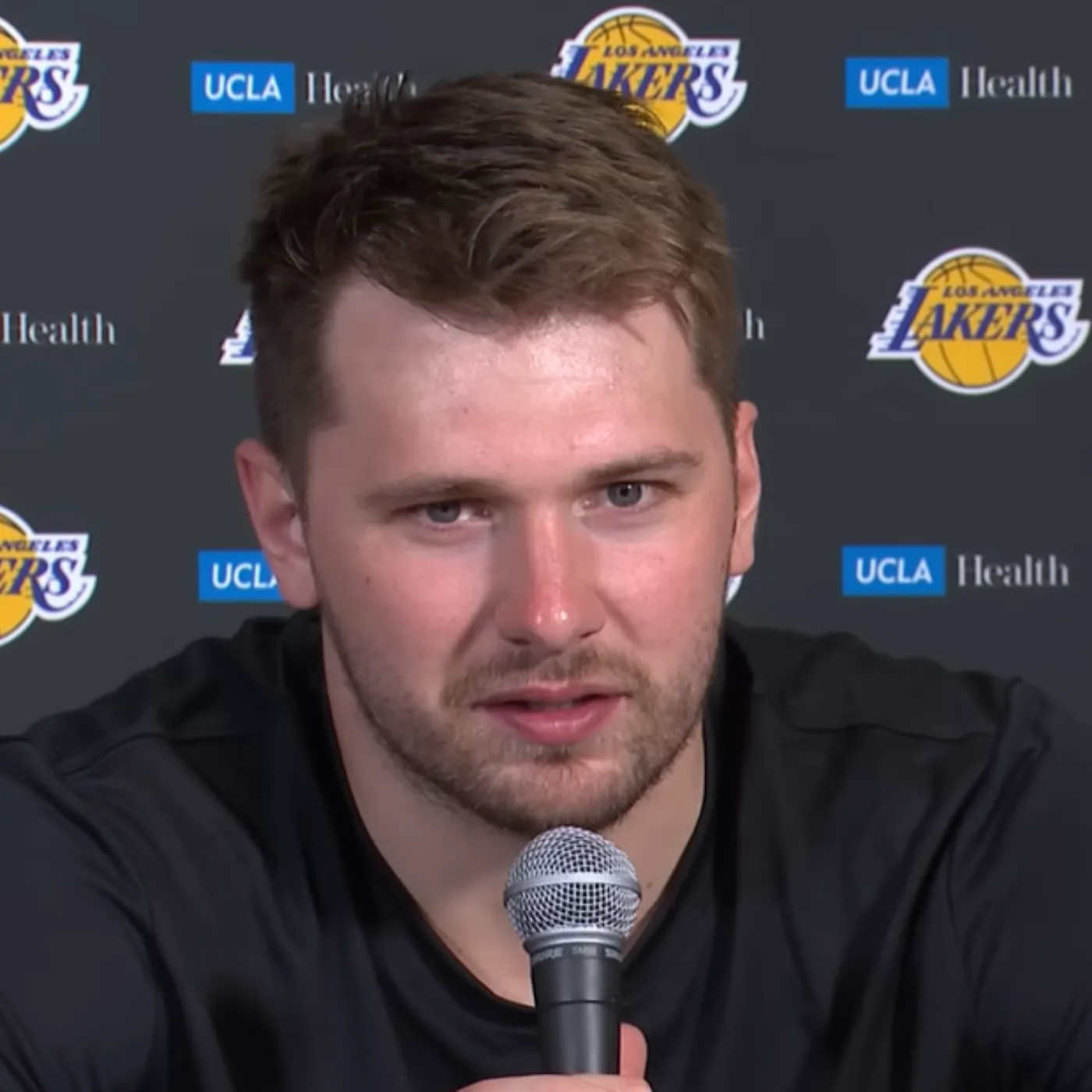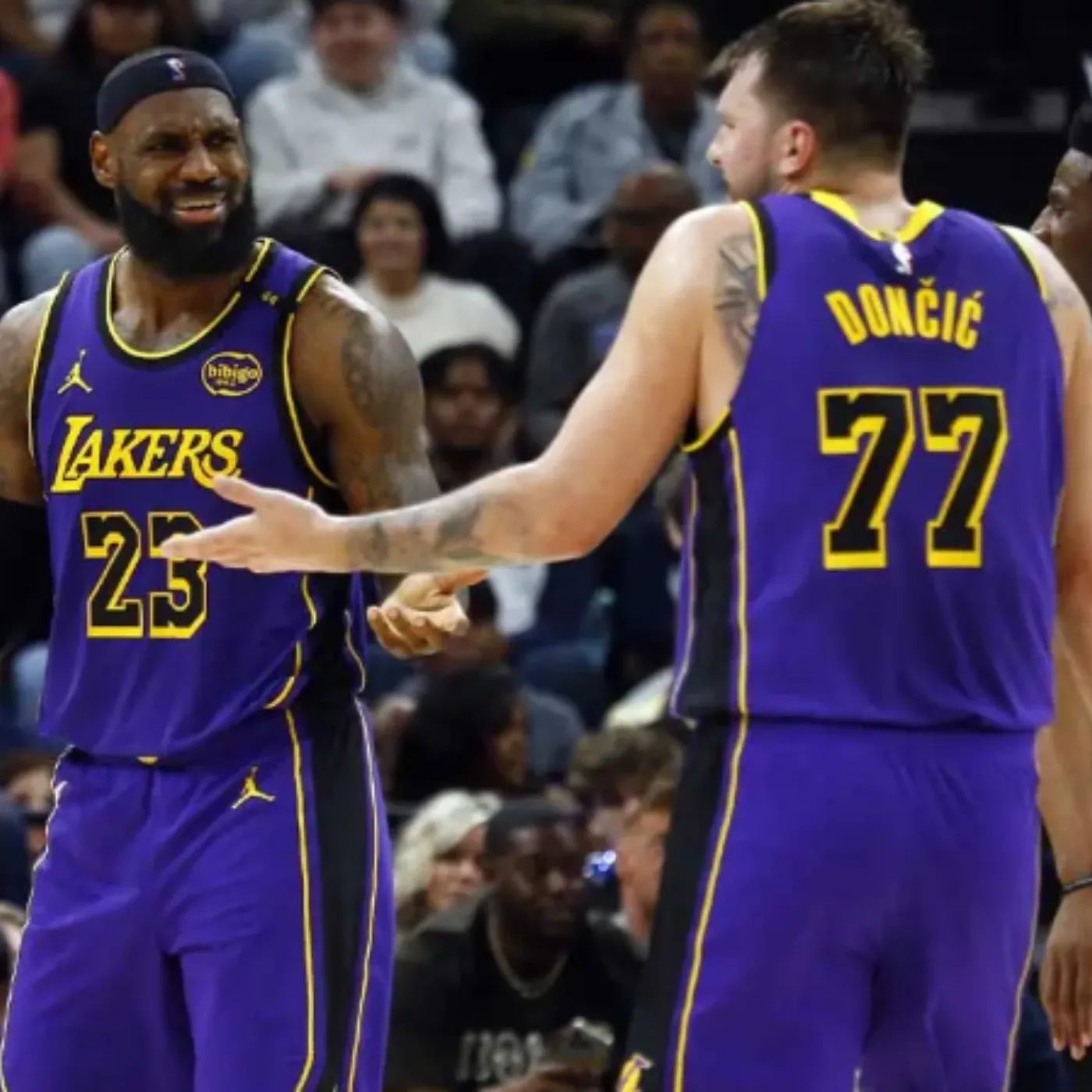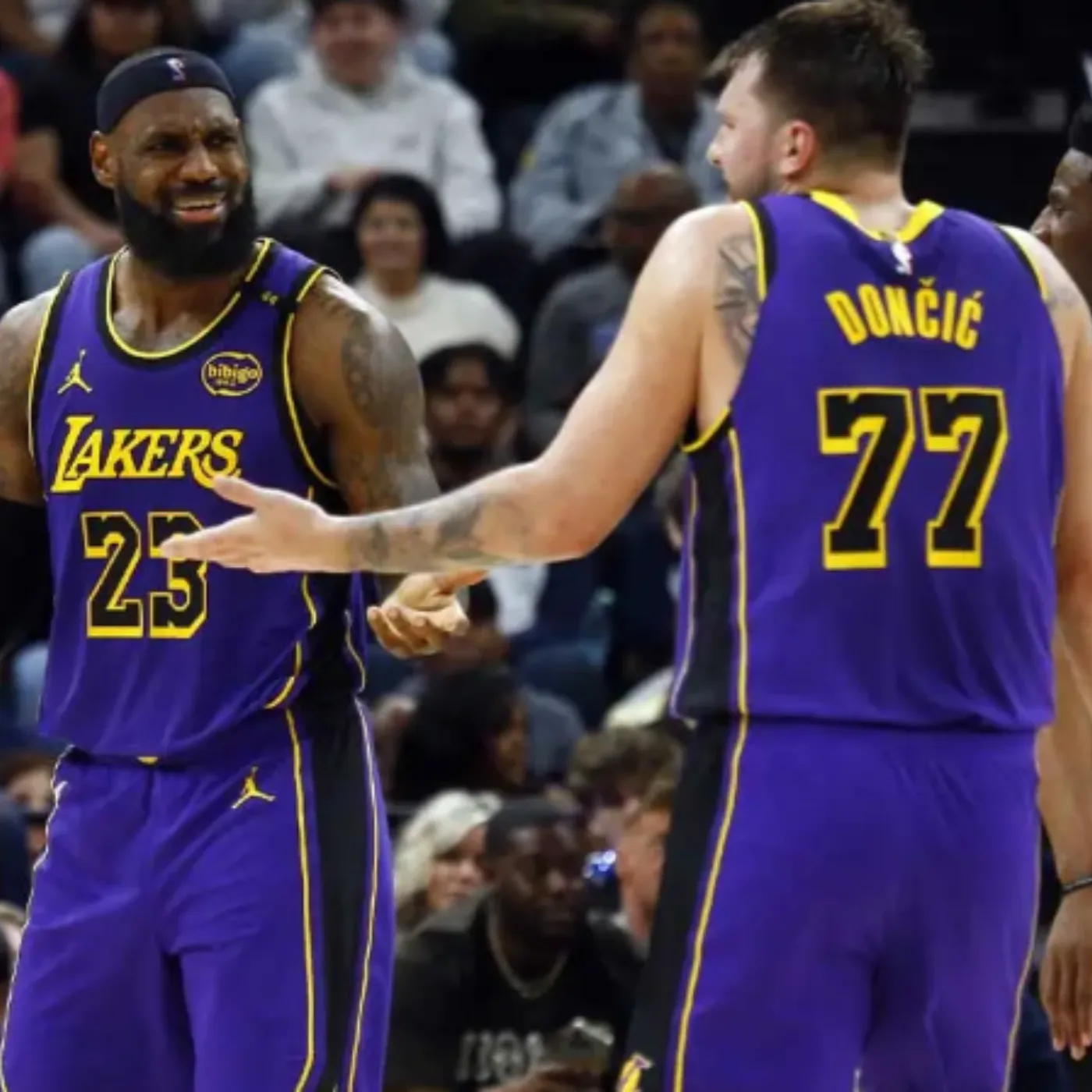
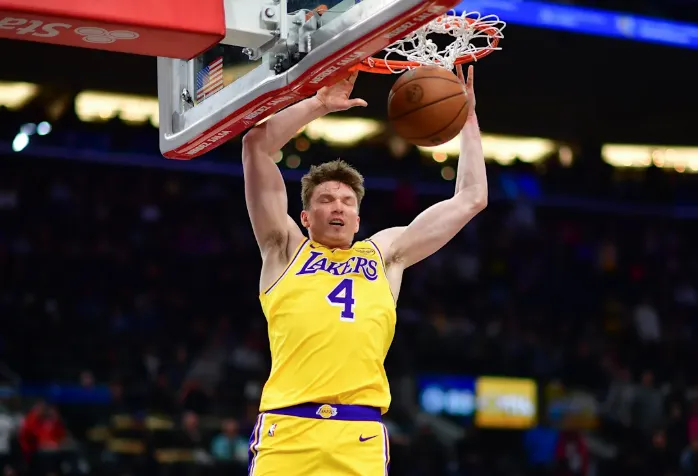
Dalton Knecht: From Tennessee Star to ‘Dalton Who?’ at the Lakers – What’s Happening When This Rookie Has Only Played Limited Minutes in the Last 6 Games?
Dalton Knecht arrived in Los Angeles with plenty of buzz after a stellar final season at the University of Tennessee. As a standout collegiate scorer, Knecht averaged over 21 points per game, combining long-range accuracy, explosive athleticism, and a strong work ethic. These traits helped elevate him to 17th overall in the NBA Draft 2024, where he was selected by the Los Angeles Lakers, a franchise with one of the most intense media spotlights in all of sports.
From the outset, Knecht was viewed as a potentially valuable depth piece for a Lakers team hunting another title with LeBron James and Anthony Davis leading the way. But now, just months into his rookie season, fans are left asking: “What happened to Dalton Knecht?” He’s played extremely limited minutes over the last six games, totaling under 30 minutes in that span, and was even marked as a DNP-CD (Did Not Play – Coach’s Decision) in multiple contests. The sudden dip in floor time raises questions about development, expectations, and the harsh realities of breaking into a veteran-dominated rotation.
The Lakers’ rotation: a tough environment for rookies
When Dalton Knecht joined the Lakers, he entered a system not exactly known for nurturing rookie talent. The Lakers are built around veterans, and their focus remains championship contention. That leaves little room for rookies to play through mistakes or be afforded long leashes on the court.
With a roster that includes scorers like D’Angelo Russell, Austin Reaves, Rui Hachimura, and of course, LeBron James and Anthony Davis, minutes on the wing are a premium. Knecht, despite showing flashes during Summer League and early preseason, has found it difficult to earn consistent floor time.
The recent stretch—six games with almost no playing time—has frustrated fans who were excited to see Knecht develop. But this isn’t unusual for the Lakers. Young players often sit unless they offer something the team immediately needs: elite defense, reliable three-point shooting, or the ability to guard multiple positions. While Knecht shows promise in all three areas, his transition to the NBA has been slower than hoped.
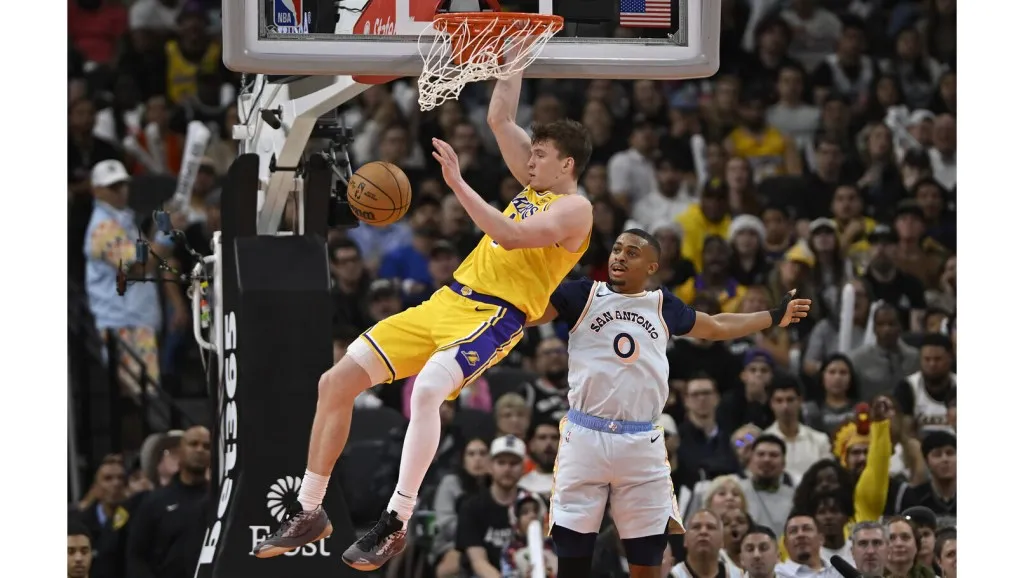
Understanding the rookie learning curve
Making the leap from college star to NBA role player is a monumental adjustment. At Tennessee, Knecht was the focal point. Plays were drawn up for him. He had the ball in his hands and was given the green light to shoot or create. In Los Angeles, his role is far more restricted.
Without regular playing time, it’s hard for a rookie to develop rhythm, especially in a system as complex as the Lakers’. The defensive coverages, pace, spacing, and physicality are all significantly different at the professional level. Knecht must adjust not only physically, but mentally.
Moreover, head coach Darvin Ham has emphasized defensive discipline and trust in rotation assignments. If Knecht makes even small defensive lapses, it may cost him minutes. For a young player still learning the speed and angles of NBA offense and defense, those mistakes are almost inevitable.
Lakers fans growing impatient: ‘Free Dalton Knecht’
On social media, a movement is growing. The hashtag #FreeDaltonKnecht has trended during games where the Lakers struggle with spacing or lack scoring from the bench. Fans see a player with size, athleticism, and an ability to score, and they wonder why he’s glued to the bench.
The frustration is especially noticeable during games where the bench unit stalls or when older veterans get extended minutes despite poor performance. Many argue that, even if Knecht isn’t yet polished, the team should invest minutes in his development now, especially during regular season games where playoff seeding is not on the line.
Knecht has shown flashes—smart cuts, confident spot-up shooting, and the ability to get above the rim in transition. But these moments are scattered across limited minutes, making it difficult for him to build on them. The inconsistency in playing time has also made it hard for him to establish chemistry with teammates or define a clear role.
Dalton Knecht’s response: staying locked in despite adversity
While some rookies might grow discouraged, Knecht has reportedly remained focused and professional. He’s often seen working out before and after games, studying film, and sitting with assistant coaches during timeouts and practices. His attitude has impressed Lakers staff, who note that he’s not only coachable but eager to improve.
In interviews, Knecht hasn’t expressed frustration. Instead, he talks about earning trust and doing the small things that lead to playing time. “It’s a long season,” he said in a recent media session. “I just have to stay ready.”
This mindset bodes well for his long-term development. NBA careers are rarely linear, and even stars like Jimmy Butler, Khris Middleton, and Jalen Brunson had slow starts to their professional journeys.
The impact of trade rumors on Knecht’s role
Adding another layer to Knecht’s difficult situation are the trade rumors. Earlier in the season, he was included in several speculative trade packages, particularly around the Lakers’ reported interest in adding another forward or backup point guard. One high-profile rumor involved a potential trade with the Charlotte Hornets, where Knecht would have been one of the young assets.
The deal never materialized, but the message was clear: Knecht was seen as movable. For a rookie, that can be mentally taxing. Being treated as trade fodder only months after being drafted sends a signal that your long-term fit isn’t guaranteed.
Yet again, Knecht’s response was composed. Sources close to the team say he hasn’t let the rumors affect his preparation. Instead, he’s chosen to use the uncertainty as motivation, pushing himself harder in training and film sessions.
The path forward: What Knecht must do to earn minutes
So what does Dalton Knecht need to do to break back into the Lakers’ rotation?
First and foremost, defense. Lakers coaches have emphasized the importance of rotational awareness, help-side timing, and on-ball pressure. If Knecht can become a dependable wing defender—using his size to bother shooters and staying disciplined in closeouts—his path to minutes opens considerably.
Second, shooting efficiency. While he was a strong shooter in college, Knecht has had limited opportunities to showcase that at the pro level. When he gets the ball, he needs to let it fly with confidence and hit open looks at a high clip.
Lastly, off-ball movement and decision-making. With so many dominant ball-handlers on the roster, Knecht’s value lies in smart positioning—relocating to create spacing, cutting hard, and making quick, simple reads. The less he tries to do too much, the more he fits the current system.
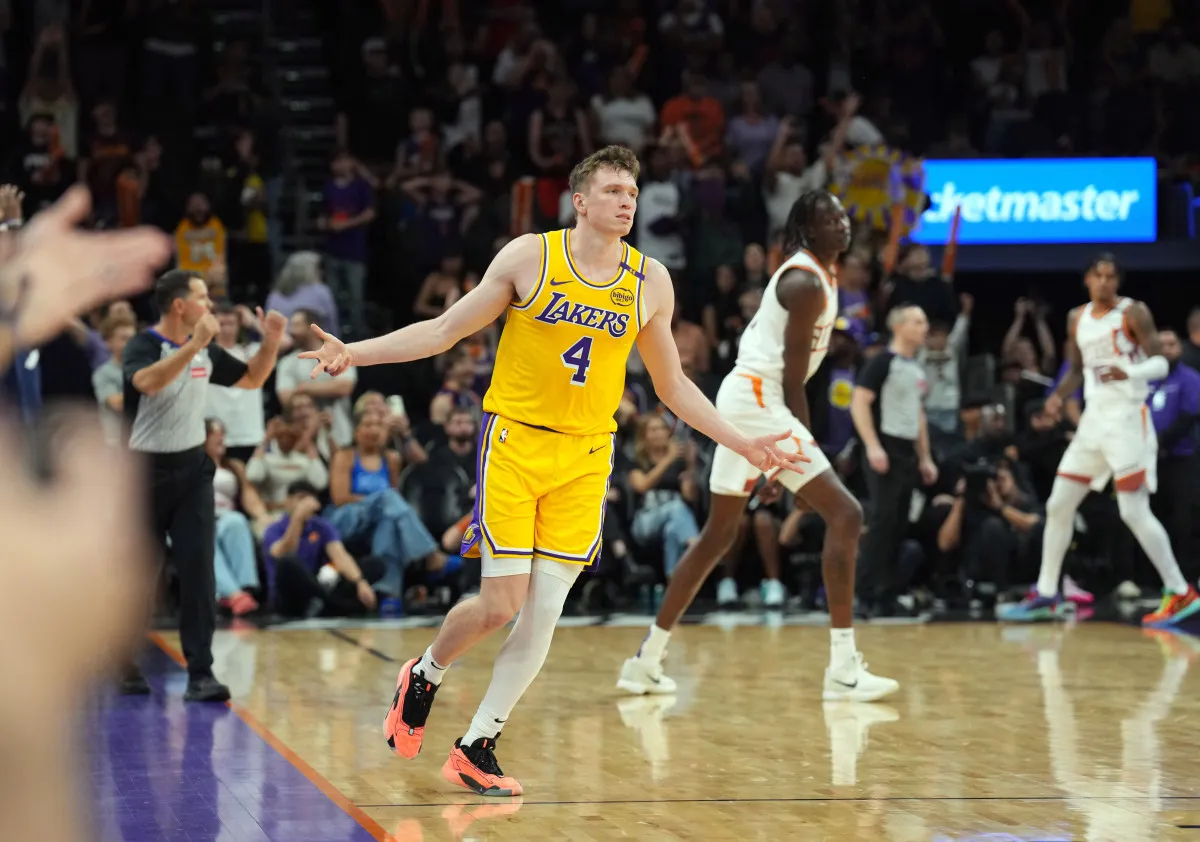
Is a G League stint the next move?
One option that has yet to be fully explored is a potential assignment to the South Bay Lakers, the team’s G League affiliate. Such a move would not be a demotion but rather a chance for Knecht to get extended playing time, work on his game in live situations, and regain rhythm.
Several players have benefitted from G League stints in recent years. Jordan Poole, Desmond Bane, and even Austin Reaves spent time developing in lower leagues before becoming key NBA contributors. For Knecht, playing 30+ minutes a night—even outside the NBA—might be more valuable than sitting on the bench in a suit.
Whether the Lakers opt for that route remains to be seen, but with the playoffs looming and roster decisions tightening, such a move may be the best path forward for all parties.
Conclusion: The journey is just beginning for Dalton Knecht
While Dalton Knecht’s limited minutes in recent games have led to frustration among fans and raised questions about his fit with the Lakers, it’s important to remember that the NBA is a long game. Rookie years, especially on veteran-laden teams, can be brutal. But they can also be formative.
Knecht’s resilience, professionalism, and work ethic have laid a strong foundation. If he stays focused and continues to develop his defensive acumen and shooting consistency, the minutes will come—whether in Los Angeles or elsewhere.
Right now, he may be “Dalton Who?” to some fans, but given his pedigree, skillset, and determination, don’t be surprised if he becomes “Dalton Wow” sooner than expected. His story is still being written—and it’s far from over.








